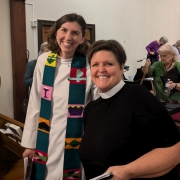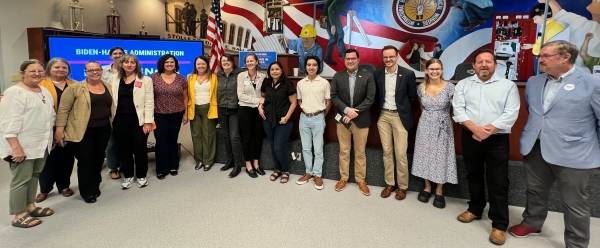Rev. Clara Sims: Uncertain Future for Solar Funds in New Mexico
Perhaps one of the biggest threats to clean energy and energy-efficiency programs in New Mexico is Trump’s pledge in recent months to rescind “all unspent funds” from the federal Inflation Reduction Act.
Rev. Clara Sims, assistant executive director for Interfaith Power & Light New Mexico-El Paso, told the Santa Fe New Mexican (@thenewmexican.bsky.social) about our concern for the future of federal funding to promote solar power for faith communities in our state. “That’s certainly a concern for us in terms of looking ahead to the potential of really rolling back the money that’s available,” said Rev. Sims.
Rev. Sims said IPL-New Mexico-El Paso has worked for decades to help faith communities in New Mexico and El Paso complete energy-efficiency audits and install solar panels but the “direct pay” provisions in the Inflation Reduction Act have prompted a rapid rise in faith communities going green.
The direct pay, or elective pay, program allows tax-exempt nonprofits and government entities to receive a payment for up to 30% of their solar installation costs the year after installation. Sims said her organization has worked with five faith groups that are in the process of using the tax credit.
“My sense is that the faith communities who maybe don’t have the same kind of budget capacity that others did in the past have been able to really push that forward in their congregations or houses of worship in the past several years,” Sims told The New Mexican.
Read full article


